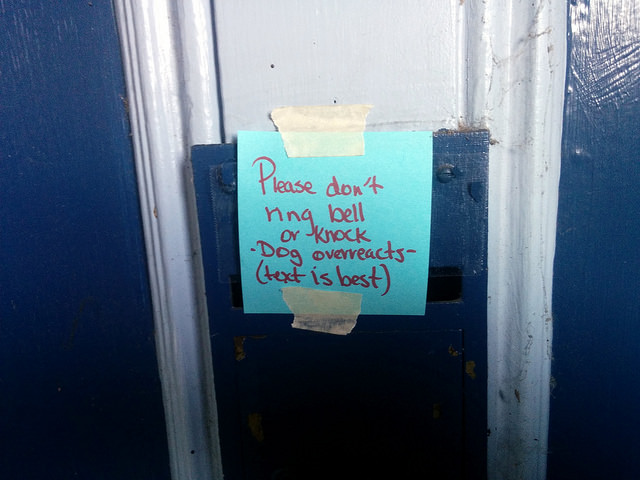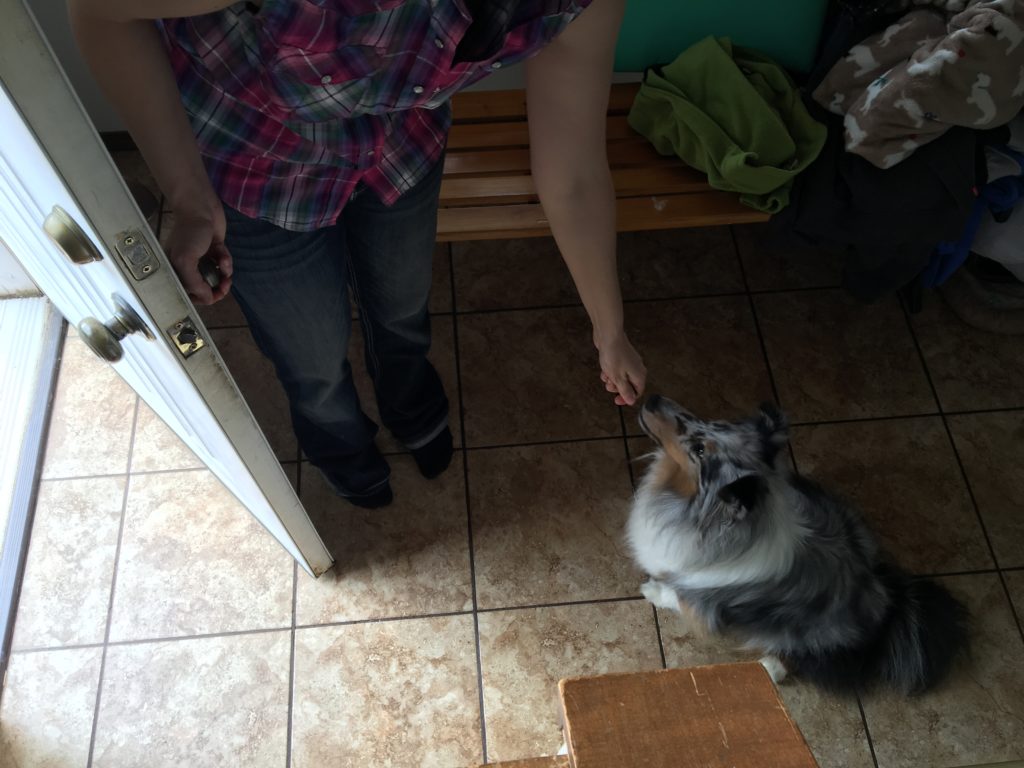Do you have a dog that barks at every little noise? Whether it’s another dog barking, the doorbell, or simply you opening a cupboard, your dog feels the need to bark. Dogs who are overly sensitive to sound – sometimes called “alert barkers,” can make daily life extremely unpleasant and even require you to post signs on your door! Luckily, there are ways you can help your dog stop the incessant barking.

Why Some Dogs Bark At Noise
So why are some dogs more sensitive to noises? We can’t say for every dog with certainty, but there seems to be a few reasons:
- Your dog is anxious and stressed and that manifests through barking at everything.
- Your dog feels the need to guard his home and you from every threat, and that includes any noise he hears.
- Over-excitement, like when they hear you dishing up their food or someone parks a car in the driveway.
- Because other dogs in the neighborhood are barking and your dog feels inclined to join in.
Tips To Help The Dog That Barks At Noises
There are things you can do help your noise sensitive dog live a more relaxed life, which in turn will give you a more peaceful household.
First – ignore the barking. I know, this is the worst possible thing to think of doing. But when you yell at your dog, he just thinks you’re joining in. If you think your dog is doing it out of fear, don’t pet or try to console him, your dog may think he is being rewarded for barking. It’s best to ignore it. (Earplugs are great…)
Second – counter conditioning. Next, you are going to employ good ‘ole science to help your dog. Since noises make your dog react, you are going to condition him to think “reward” when he hears a noise and is quiet, instead of barking. To do this, you need to start out with a noise or a volume of noise that your dog doesn’t react to. Then reward him for being quiet. Gradually increase volume or type of noise as your dog is successful. There are noise CDs for dog made specifically for this kind of training. (P.S. while the sign above may feel embarrassing, it’s great for while you are training your dog to manage the behavior). Also, ringing the doorbell while no one is there can help, as sometimes the barking is related to the fact that they know a person is coming when they hear that sound.

Third – get help. Working with a professional positive reinforcement dog trainer will help speed this training up because they can tailor the training to your specific dog’s needs. They can also help you identify if your dog is suffering from underlying issues, such as stress and anxiety, which may be making the behavior worse.
